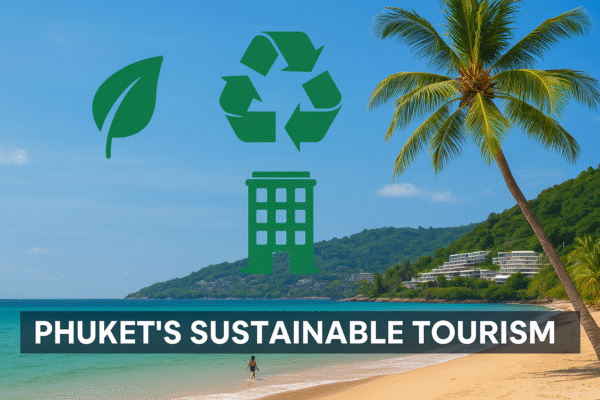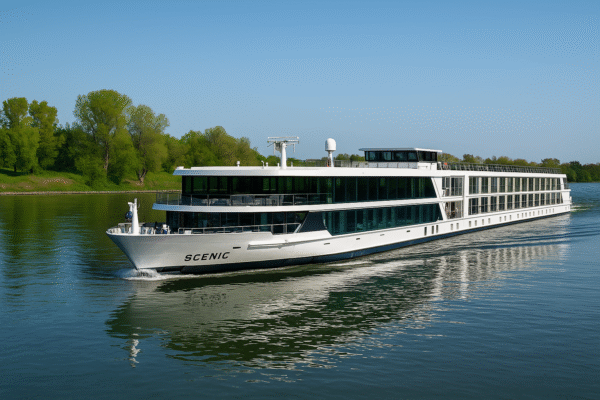Phuket, Thailand’s famed island paradise, is rapidly transforming into a national model for sustainable tourism. Backed by leading financial institutions like Siam Commercial Bank (SCB) and eco-forward hotel operators such as Kata Group and Jee Teng Hospitality, Phuket is setting the standard for environmentally responsible travel. This collaborative approach is elevating Phuket’s global reputation as a top destination for eco-conscious travelers and driving long-term benefits for both the environment and local economy.
As global travelers increasingly favor destinations that prioritize environmental responsibility, Thailand’s tourism sector is adapting. Sustainability is no longer a buzzword—it’s a business imperative. And at the center of this shift stands Phuket, now recognized as a pilot destination for Thailand’s green tourism ambitions.
The Rise of Eco-Tourism in Thailand
With international concerns about climate change rising, more tourists are choosing accommodations and destinations that align with sustainability goals. In Thailand, this shift has prompted the hospitality sector to adopt green practices to remain competitive. Reducing carbon footprints, conserving water, and eliminating single-use plastics are no longer optional—they’re essential.
Phuket has capitalized on this movement, establishing itself as Thailand’s leading ecotourism destination. In the first five months of 2025 alone, the island welcomed over 2.4 million foreign tourists, an 8% increase from the same period in 2024. This growth underscores the island’s appeal and its capacity to attract a new wave of responsible travelers.
SCB’s Green Finance Powers Tourism Transformation
A vital pillar of Phuket’s green transformation is the robust financial backing from Siam Commercial Bank. SCB has become the country’s leader in sustainable finance, launching a suite of green financial products including sustainability-linked loans, green bonds, and targeted hotel investment packages.
As of mid-2025, SCB’s hotel loan portfolio in Phuket stands at 20 billion baht, with sustainable tourism projects accounting for a growing share. Nationally, the bank has already disbursed 180 billion baht in green loans and bonds—exceeding its three-year target. This includes 80 billion baht allocated specifically to the hospitality sector.
SCB’s commitment aligns with Thailand’s national climate roadmap. A major focus includes certifying 600 hotels in Phuket with “Green Hotel Plus” certification by the end of 2026, part of a larger government push led by the Ministry of Natural Resources and Environment and the Department of Climate Change and Environment.
Eco-Conscious Hotel Operators Set the Benchmark
Hotel groups in Phuket are also taking bold steps. Kata Group Resorts, a pioneer in green tourism, operates nine properties across Phuket, Krabi, Phangnga, and Koh Samui. Its “Beyond Kata” resort stands out for incorporating open-air design that reduces cooling needs, in-house composting, food redistribution programs, and water-saving systems. These efforts cut operating costs by over 1.1 million baht monthly while promoting environmental stewardship.
Similarly, Jee Teng Hospitality is leading the charge with its Four Points by Sheraton Phuket Patong Beach Resort. This property has earned a three-leaf rating from Thailand’s Green Leaf Foundation for reducing energy consumption and sourcing locally. The hotel boasts a 90% occupancy rate and a gross operating profit margin above 50%, proving that eco-efficiency and profitability can go hand in hand.
Jee Teng is also developing the Sheraton Phuket Nai Harn Beach Resort and Spa, expected to open in 2028. The project will hold EDGE certification, a globally recognized green building standard, and serves as a flagship project under SCB’s sustainable investment program.
Government-Backed Infrastructure & Climate Policy Support
The Thai government’s support has been essential in Phuket’s sustainable transition. Public investment is focused on improving waste and water management infrastructure to avoid over-tourism. The proposed Climate Change Act and national clean energy targets further strengthen this momentum.
Public-private partnerships are working to ensure the island’s infrastructure can support rising visitor numbers without environmental degradation. The government has partnered with tourism boards and international councils to host the Global Sustainable Tourism Council (GSTC) Conference in 2026—with Phuket positioned to showcase its success on the world stage.
Kris Chantanotoke, SCB CEO, noted that many smaller hotel operators in Phuket still lack access to sustainability resources. To address this, SCB has launched educational initiatives, micro-loans, and advisory services tailored to SMEs. These efforts aim to reduce their operational costs while improving environmental impact, ultimately democratizing access to green tourism benefits.
Phuket as a Blueprint for Thailand’s Tourism Future
Phuket’s progress isn’t just a local achievement—it’s a blueprint for Thailand’s nationwide tourism strategy. As climate challenges mount and global tourism shifts toward eco-responsibility, Phuket offers a compelling example of how destinations can align profitability with sustainability.
With ongoing support from financial institutions, government agencies, and the private sector, Phuket is redefining what it means to be a world-class tourism destination. The island’s integration of financial innovation, eco-conscious hospitality, and long-term environmental planning makes it a cornerstone of Thailand’s sustainable future.
As global demand for green travel rises, Thailand—led by Phuket—is well-positioned to capture the attention of travelers seeking meaningful, environmentally responsible experiences. The island’s journey from a popular holiday destination to a sustainability pioneer marks a defining moment in Southeast Asia’s tourism evolution.
For more travel news like this, keep reading Global Travel Wire






















